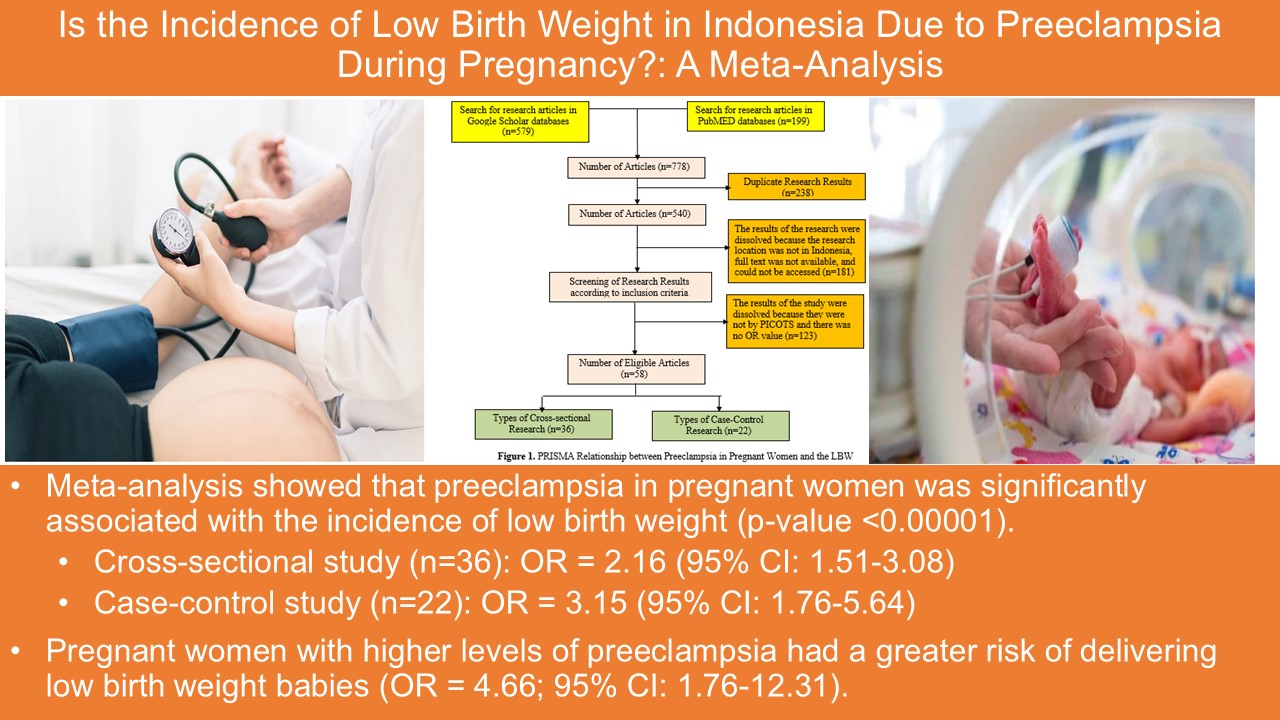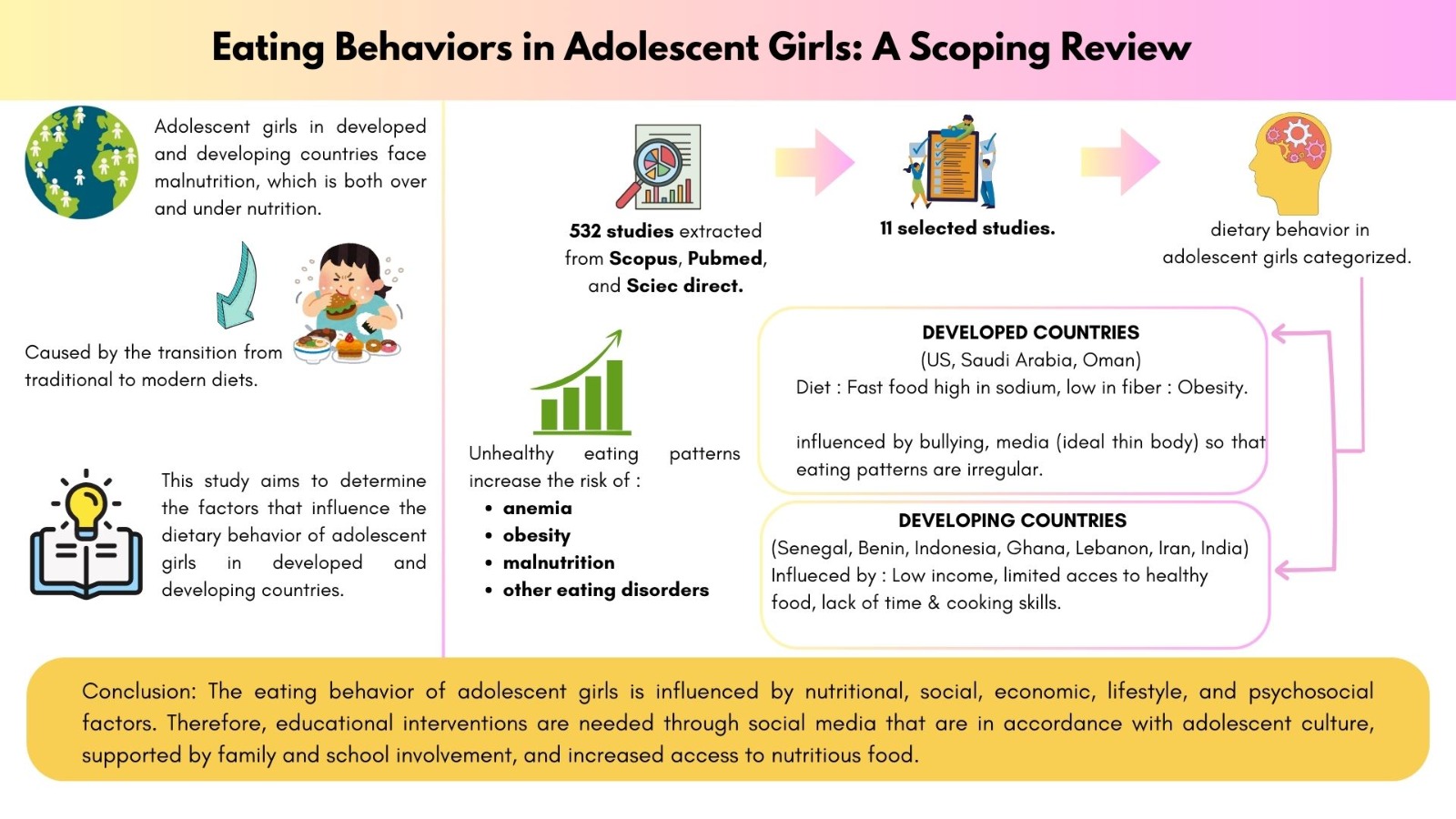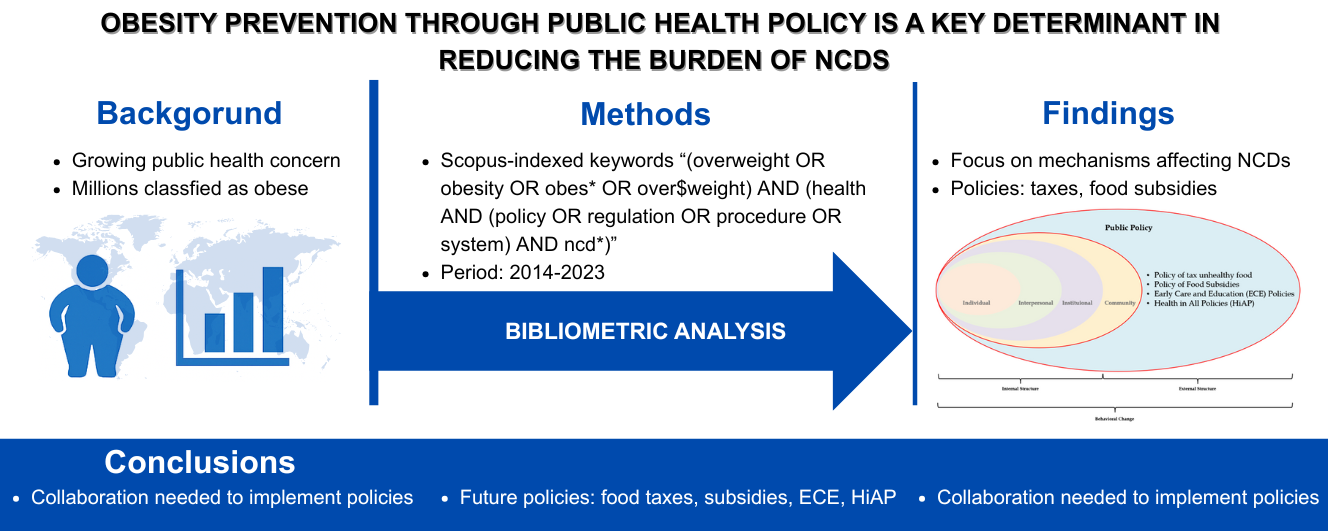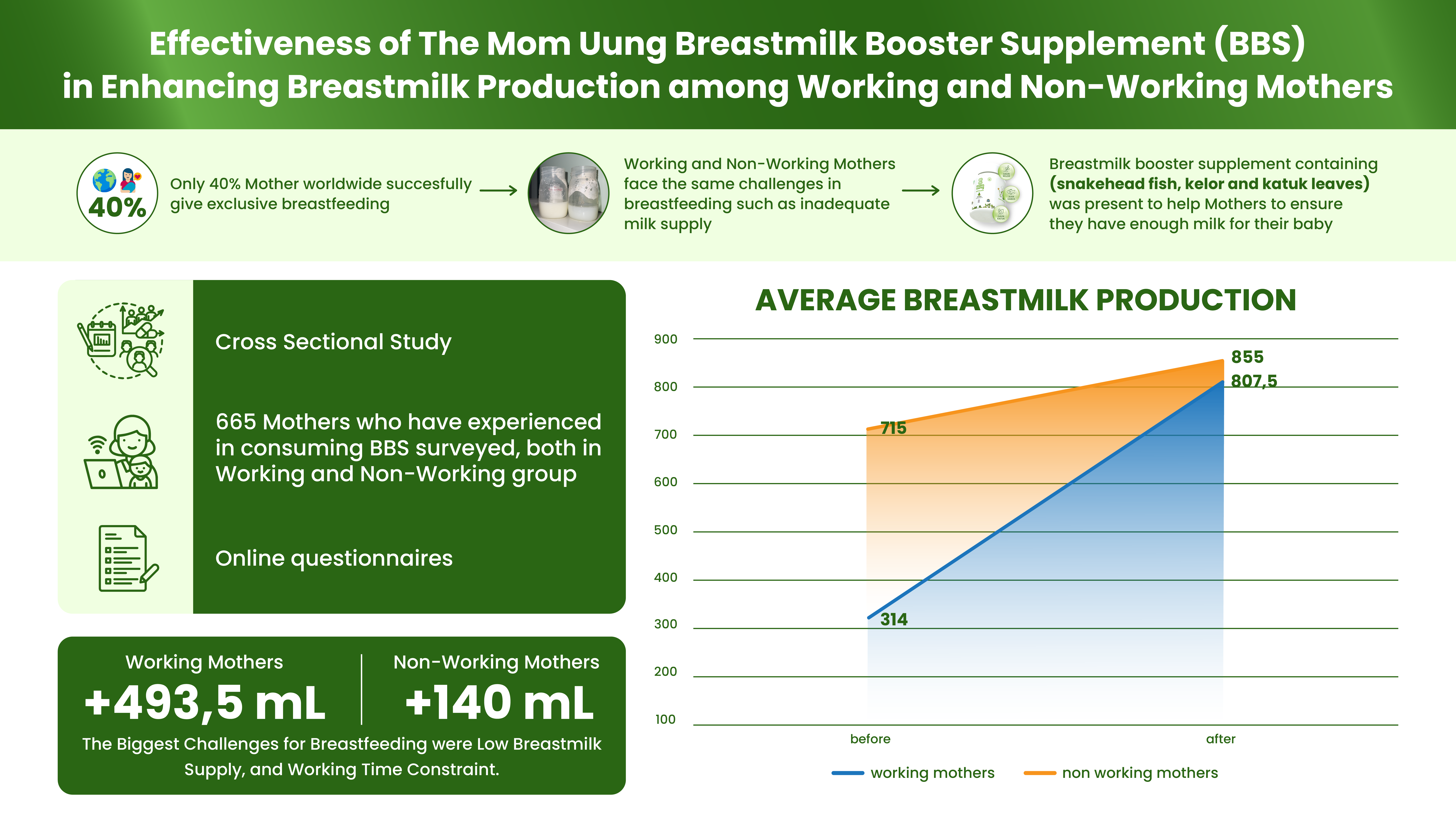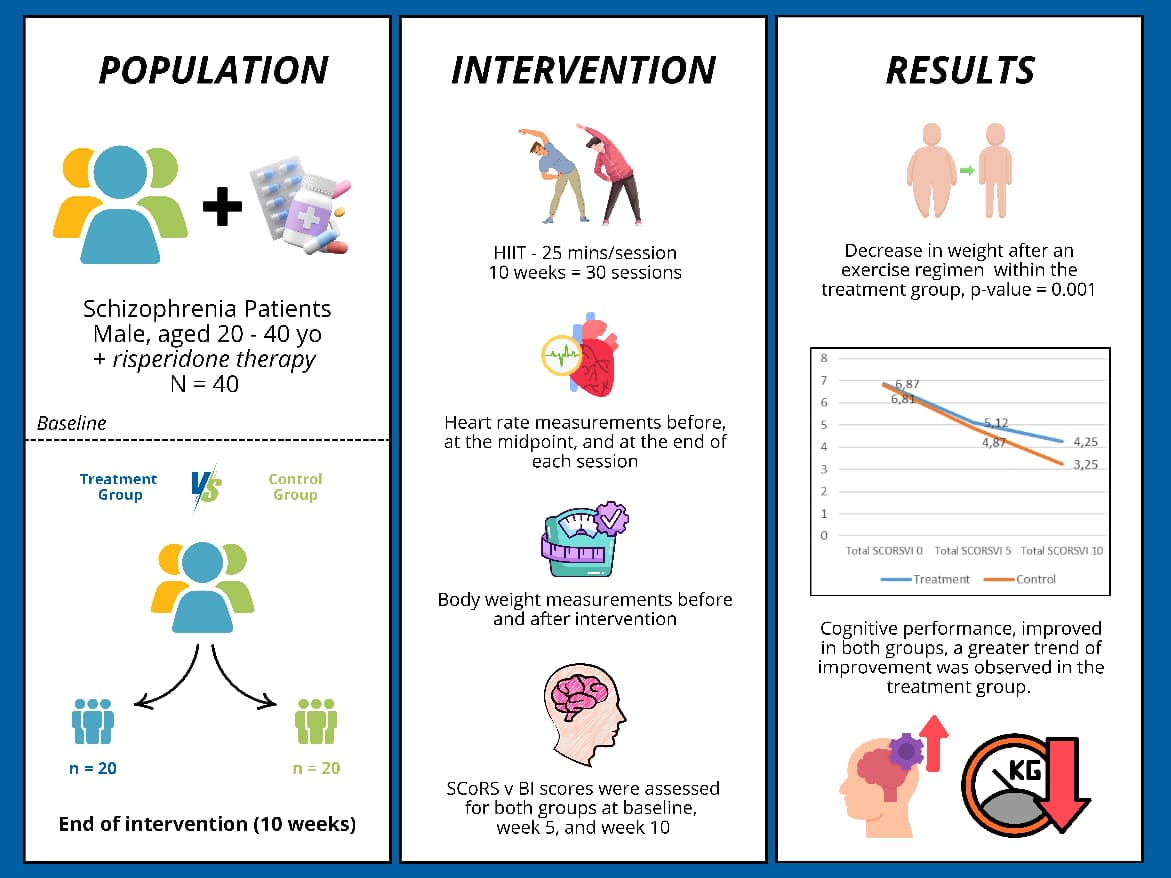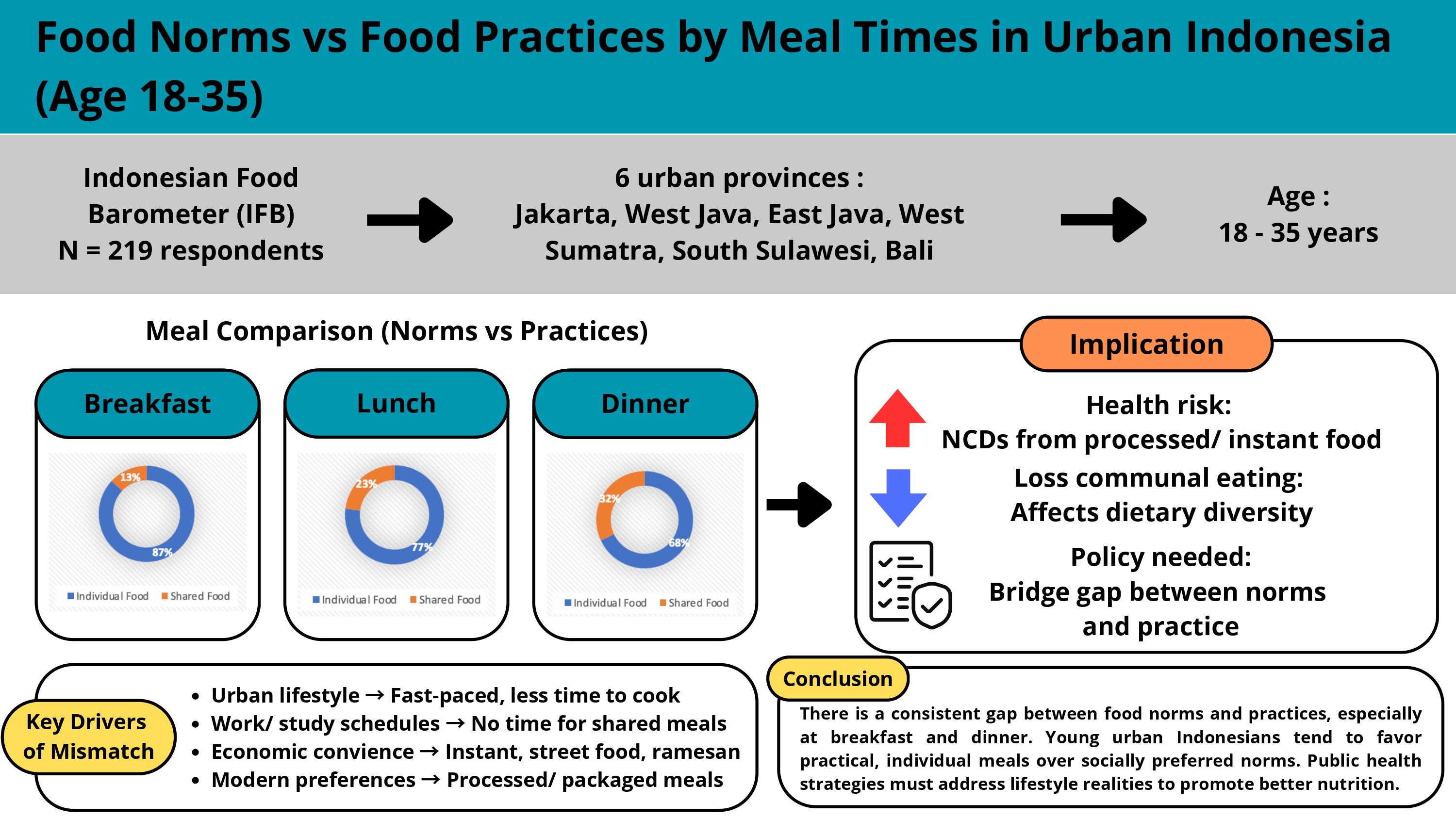JUMLAH UANG SAKU DAN KEBIASAAN MELEWATKAN SARAPAN BERHUBUNGAN DENGAN STATUS GIZI LEBIH ANAK SEKOLAH DASAR
Downloads
The prevalence of overnutrition in Indonesia is increasing from year to year. Overnutrition occurs because of an imbalance between consumed and expended energy. Overnutrition needs a serious attention because it deals with a variety of health problem complications in adult, such as diabetes and heart disease. This research aims to analyze the association between the amount of pocket money and breakfast habit with overnutrition status in elementary school children. Analytical observational research with cross sectional design was conducted in SDN Ploso I-172 Tambaksari Surabaya. The sample size was 52, which was taken by using simple random sampling technique in 4th and 5th grade students. Association among variables were analyzed using Chi-Square test. The result showed that 32.7% of respondents skip breakfast. The mean of respondent's pocket money was IDR 5.894,23 ± 3.215,06. Majority of respondents were obese (34.6%) and overweight (28.8%). Chi-Square test showed there was an association between the amount of pocket money (p=0.000) and breakfast habits (p=0.005) with overnutrition status. It can be concluded that the amount of pocket money and breakfast skipping habit contribute to overnutrition status in elementary school children. Parents are responsible for providing foods with adequate nutrition for children, habituate children to have breakfast at home, and provide pocket money to children with amount less than IDR 5.894,23 ± 3.215,06.
Keywords: breakfast, overnutrition status, pocket money
Ahmad, S., Waluyo, & Farissa F. (2013). Hubungan Kebiasaan Sarapan Pagi dan Jajan dengan Status Gizi Anak Sekolah Dasar di SD Negeri Kledokan Depok Sleman Yogyakarta. Medika Respati, 8(1). Diakses dari http://journal.respati.ac.id/index.php//medika/article/viewFile/95/91
Alamin, R. L., & Syamsianah, A. (2014). Hubungan Sarapan Pagi di Rumah dan Jumlah Uang Saku dengan Konsumsi Makanan Jajanan di Sekolah pada Siswa SD N Sukorejo 02 Semarang. Jurnal Gizi, 3(1). Diakses dari http://jurnal.unimus. ac.id/index.php/jgizi/article/view/1326
Aprillia, B. A. (2011). Faktor yang Berhubungan dengan Pemilihan Makanan Jajanan pada Anak Sekolah Dasar (Skripsi, Universitas Diponegoro, Semarang). Diakses dari http:// eprints.undip.ac.id/32606/
Budiyanto, A. K. (2009). Gizi dan Kesehatan. Malang: Bayu Media dan UMM Press. Departemen Kesehatan RI. (2011). Jejaring
Informasi Pangan dan Gizi Edisi II. Jakarta: Depkes RI.
French, S., & Mary S. Food advertising and marketing directed at children and adolescents in the US. International Journal of Behavioral Nutrition and Physical Activity, 1(1), 1. Diakses dari http://www.ncbi.nlm.nih.gov/pmc/articles/ PMC416565/
Hermina, A. N., & Rina A. (2009). Faktor-Faktor yang Memengaruhi Kebiasaan Makan Pagi pada Remaja Putri di Sekolah Menengah Pertama (SMP). Penelitian Gizi dan Makanan (The Journal of Nutrition and Food Research),32(2), 94-100. Diakses dari http://ejournal. litbang.depkes.go.id/index.php/pgm/article/ view/1458
Hidayati, S.N., Rudi I., & Boerhan H. (2007).
Obesitas pada Anak. Surabaya: Fakultas Kedokteran Universitas Airlangga. Kementrian Kesehatan RI. (2012). Keputusan
Menteri Kesehatan Republik Indonesia Nomor: 1995/ Menkes/SK/XII/2010 tentang Standar Antropometri Penilian Status Gizi Anak. Diakses dari http://gizi.depkes.go.id/
Kral, T. V., Whiteford, L. M., Heo, M., & Faith, M.S. (2011). Effects of eating breakfast compared with skipping breakfast on ratings of appetite and intake at subsequent meals in 8-to 10-y- old children. The American journal of clinical nutrition, 93(2), 284-291. Diakses dari http:// ajcn.nutrition.org/content/ 93/2/284.short
Kristianto, Y., Bastianus D. R., & Annasari M. (2013). Faktor Determinan Pemilihan Makanan Jajanan pada Siswa Sekolah Dasar. Kesmas: Jurnal Kesehatan Masyarakat Nasional, 7(11),
-494.
Marie, N., Tom F., Margaret R., Blake T., & Nicholas G. (2014). Global, regional, and national prevalence of overweight and obesity in children and adults during 1980–2013: a systematic analysis for the Global Burden of Disease Study 2013. The Lancet, 384(9945),
-781. Diakses dari http://www.sciencedirect. com/science/article/pii/S0140673614604608
McCormick, T., Thomas J. J., Bainivualiku A., Khan A. N., & Becker A. E. (2010). Breakfast Skipping as A Risk Correlate of Overweight and Obesity in School-Going Ethnic Fijian Adolescent Girls. Asia Pacific journal of clinical nutrition, 19(3), 372. Diakses dari http://www. ncbi.nlm.nih.gov/pubmed/20805082
Moehji, S. (2003). Ilmu Gizi, Penanggulangan Gizi
Buruk. Jakarta: Papas Sinar Sinanti Bhratara. Notoatmodjo, S. (2003). Pendidikan dan Perilaku
Kesehatan. Jakarta: Rineke Cipta.
Putra, A. E. (2010). Gambaran Kebiasaan Jajan Siswa di Sekolah (Skripsi, Universitas Diponegoro, Semarang). Diakses dari http:// eprints.undip.ac.id/24807/
Rampersaud, G. C., Pereira, M. A., Girard, B. L., Adams, J., & Metzl, J. D. (2005). Breakfast habits, nutritional status, body weight, and academic performance in children and adolescents. Journal of the American Dietetic Association,
(5), 743-760. Diakses dari http://www.ncbi. nlm.nih.gov/pubmed/15883552
Badan Penelitian dan Pengembangan Kesehatan. (2013). Riset Kesehatan Dasar 2013. Jakarta: Balitbangkes, Departemen Kesehatan, Republik Indonesia.
Ristiana, S. (2009). Hubungan Pengetahuan, Sikap, Tindakan Sarapan dengan Status Gizi dan Indeks Prestasi Anak Sekolah Dasar di SD Negeri No. 101835 Bingkawan Kecamatan Sibolangit Tahun 2009. Diakses dari http:// www.researchgate.net/
Rosyidah, Z. (2015). Hubungan antara Jumlah Uang Saku, Kebiasaan Sarapan, dan Pola Konsumsi Makanan Jajanan dengan Status Gizi Lebih Anak Sekolah Dasar (Studi di SDN Ploso I-172 Kecamatan Tambaksari Surabaya) (Skripsi Tidak terpublikasi). Universitas Airlangga, Surabaya.
Sandercock, G.R.H., Voss C., & Dye L. (2010).
Associations between Habitual School-day Breakfast Consumption, Body Mass Index, Physical Activity, and Cardiorespiratory Fitness in English Schoolchildren. European Journal of Clinical Nutrition, 64(10), 1086-1092. Diakses dari http://www.nature.com/ejcn/journal/v64/ n10/abs/ejcn2010145a.html
Siagian, A. (2004). Hubungan Sarapan dan Obesitas. Diakses dari http://www.kompas. com/
WHO. (2000). Obesity: Preventing and Managing The Global Epidemic. Geneva: WHO Technical Report Series.
WHO. (2013). Interim Report of the Commision on Ending Childhood Obesity. Geneva: WHO Technical Report Series.
Yaqin, M. K., & Faridha N. (2014). Prevalensi Obesitas pada Anak Usia SD Menurut IMT/U di SD Negeri Ploso II No 173 Surabaya. Jurnal Pendidikan Olahraga dan Kesehatan,2(1). Diakses dari http://ejournal.unesa.ac.id/ index.php/jurnal-pendidikan-jasmani/article/ view/8105/0
- MEDIA GIZI INDONESIA Journal is the copyright owner of all materials published on this website.
- The formal legal provisions for access to digital articles of this electronic journal are subject to the terms of the Creative Commons Attribution-NonCommercial-ShareAlike license (CC BY-NC-SA 4.0), which means that MEDIA GIZI INDONESIA Journal and readers reserve the right to save, transmit media / format, manage in database, maintain, and publish articles as long as it continues to include the name of the Author.
- Printed and published print and electronic manuscripts are open access for educational, research and library purposes. In addition to these objectives, the editorial board shall not be liable for violations of copyright law.


2.png)















